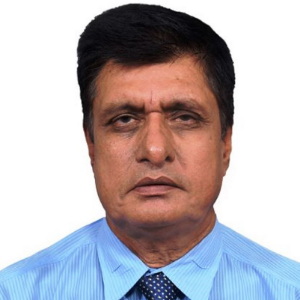Abstract:
Child sexual abuse (CSA: also termed as “child molestation”, is considered as a form of child abuse in which an adult or older person uses a child for sexual pleasure (stimulation). Forms of CSA include engaging in sexual activities with a child (whether by asking or pressuring, or by other means), indecent exposure, child grooming, and child sexual exploitation, such as using a child to produce child pornography. CSA has both short-term and long-term implications. The author of this work argues that counselling is the best way to help and prevent the harmful effects of CSA. It is pertinent to note that if an abused child does not get professional help, he/she is twice more likely to abuse others as an adult; besides being an easy target for abusers.
Prime objective of this research work is to present description on short-term long-term consequences of CSA. The author has used secondary date (collected from books, books chapter, journal articles, as well as publications of inter-governmental organizations). The used data are primarily ‘qualitative’ in nature. The method of data analysis is ‘descriptive’.
Analysis of data indicate that (immediate) psychological impacts of CSA may involve painful and disturbed emotions, Reflections of short-term consequences include: (a) post-traumatic stress disorder, and (b) distracted mood. Short-term effects include:
- fear, anxiety, guilt, shame, and depression;
- acting out in violence and anger;
- physical harm in the form of injury to genitals;
- painful urination;
- stomach aches;
- sexually transmitted diseases (STs);
- pregnancy (in case if female CSA);
- low self-esteem;
- sleep disorders;
- disturbed sexual behaviour;
- poor social function (interaction);
- lack of desire to be people around;
- poor academic performance; and
- tendency to skip from classes during school, and college days.
Long-term consequences of CSA, on the other hand, are manifested in the form of tendency to run away from home, extreme aggressive behaviour, and hurting other people. Other long-term implications are:
- alcohol and drug abuse, including smoking;
- low self-esteem, depression, and suicidal tendency during later stages of life;
- less sexually active;
- unhealthy attitudes about sex; and
- not being able to trust themselves, friends, and other adults during life span.
CSA is a growing problem, with far-reaching implications for the victims. It is prevalent across class, race, and ethnicity, across the regions and continents of the globe. With both short-term and long-term impacts, CSA involves an interaction between the abuser and the child. The child is the focus of the sexual stimulation of the offender, with minor being often silenced with threat. Another important consideration of CSA is that children are victims in almost every social setting and location: at home, schools, roads, and social gatherings.
This paper briefly concludes that the victims of CSA respond in diverse ways which can be changed over time with adequate preventive measures. How a child was harmed, for how long, by whom, age, and relationship with others have implications on how a child reacts to abuse.
Audience Takeway
- The audience will understand the conceptual framework of CSA.
- This presentation will facilitate the audience ger meaningful insight into short-term and long-term effects of CSA.
- The audience will understand the significance of counselling in prevention of CSA.




